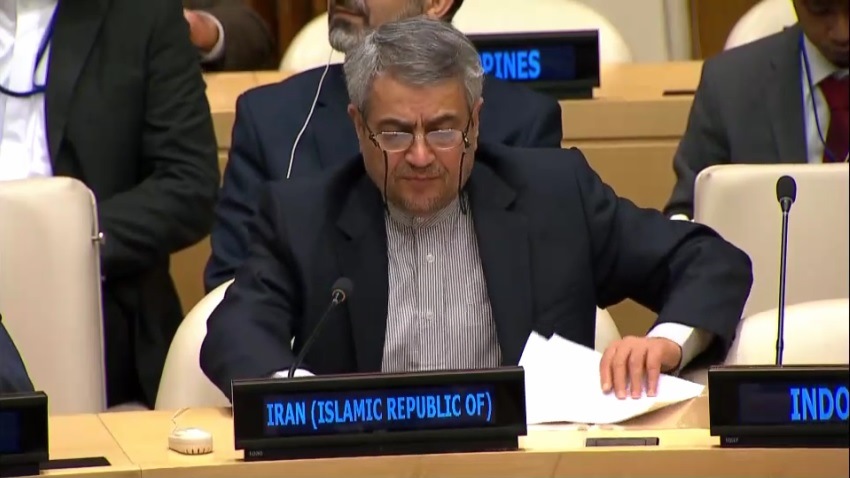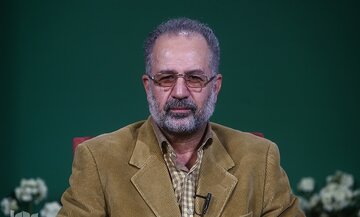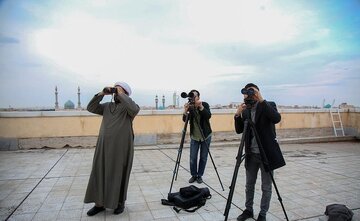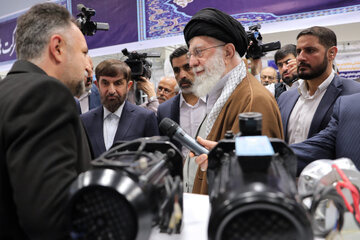Khoshroo, the Permanent Representative of the Islamic Republic of Iran addressed the First Committee of the United Nations General Assembly with the agenda on disarmament and international security early on Tuesday.
The Iranian diplomat reaffirmed that the nuclear deal between Iran and 5+1 countries ended a fabricated crisis and as truly confirmed by the representatives of many states the agreement has been a landmark achievement of diplomacy in international relations.
Saying that Iran has been fully committed to the agreement, the Iranian envoy urged the other parties involved in the agreement to be committed to their promised obligations outlined in the deal.
He boasted that Iran’s observance of the letters of the agreement has been confirmed repeatedly in the last released reports of the IAEA.
Here comes the full text of his address:
In the Name of God, the Most Compassionate, the Most Merciful
Mr. Chairman,
I would like to begin by wholeheartedly congratulating you, Ambassador Bahr al-Ulum, distinguished Permanent Representative of Iraq, on your well-deserved election to chair this important Committee. I am confident that your able leadership will lead the Committee towards a successful conclusion. I also congratulate other bureau members for their election and assure you of the full support and cooperation of my delegation.
I should also thank the outgoing Chair, distinguished Ambassador Sabri of Algeria, for his successful leadership in steering the work of the Committee.
My delegation associates itself with the NAM statement delivered by Indonesia.
Mr. Chairman,
Since the previous meeting of the Committee, we have witnessed promising and unpromising disarmament developments.
The first promising development was the adoption by the Disarmament Commission of "Recommendations on practical confidence-building measures in the field of conventional weapons". It was achieved as a result of a flexible position by NAM. This needs to be complemented with the adoption of "Recommendations for achieving the objective of nuclear disarmament and non-proliferation of nuclear weapons", which indeed requires a strong political will and flexibility by the nuclear-weapon States.
The next and more important development was the adoption of the Treaty on the Prohibition of Nuclear Weapons. It was indeed a strong collective reaction to the violation of obligations of the nuclear-weapon States on nuclear disarmament. As an active participant in its negotiations, Iran voted in favor of the Treaty and will continue to support its overall objective. This Treaty is a step forward in nuclear disarmament, which needs to be complemented by the conclusion of a comprehensive convention on nuclear weapons as called for by the Assembly for years.
We should also recall the successful conclusion of the 8th Review Conference of the Biological Weapons Convention as a promising development.
Mr. Chairman,
Nevertheless, regrettably, last year we have also witnessed the alarming trends of new nuclear arms race and new nuclear arms modernization race. These are real setbacks in establishing a nuclear-weapon-free world. Such trends would negatively affect the international peace and security as well as the existing legal regime on nuclear disarmament and non-proliferation. Therefore, they have to be stopped.
In this context, I should also refer to the continued stalemate in the establishment of a nuclear-weapon-free zone in the Middle East, as a result of the stubborn policies of the Israeli regime. The only way to start this process is the prompt and unconditional accession of the Israeli regime to the NPT, as a non-nuclear weapon party, and placing of all its nuclear installations and activities under the IAEA full-scope safeguards. As the nuclear weapons of Israel continue to threaten the peace and security of the region and beyond, the establishment of such a zone -- proposed by Iran in 1974 and supported by the consensual UNGA annual resolutions over the past 40 years -- is very urgent.
While according to the UN reports “conventional arms are the predominant means of killing and destruction”, regrettably overproduction of these weapons by major arms producing countries and their export to regions of conflict continued unabated. The living example of these alarming developments is the excessive import, by certain oil-reach countries in the Persian Gulf, of conventional weapons, most of which are used for death and destruction in Yemen.
Mr. Chairman,
This year, we have also witnessed the continued implementation of the Joint Comprehensive Plan of Action (JCPOA), concluded by P5+1 and Iran and put an end to a manufactured crisis. As rightly mentioned by many distinguished delegates in this Committee, its conclusion proved the important role that diplomacy can play in international relations. Hereby, I would like to sincerely thank all distinguished delegates who acknowledged the JCPOA’s significance and called for its continued and full implementation by all its participants. In its part, Iran fully implemented all its nuclear related commitments under the JCPOA, as verified and confirmed by the IAEA, reflected in its 8 consecutive reports. Iran will continue implementing its commitments under the JCPOA inasmuch as it gains all the intended benefits, which intrinsically and necessarily, requires its full and continuous implementation by all other JCPOA participants too. To make it clear, any continued significant non-implementation of the JCPOA commitments by one of its participants will definitely be faced with a proportionate reaction by Iran. Expectations from the JCPOA implementation needs to be proportionate and adjusted with its limited scope. As acknowledged by the international community, conclusion of the JCPOA was a win-win achievement, and to remain so, its full and continued implementation by all its participants is essential. Diplomacy and such a cardinal principle of international law as the pacta sunt servanda (agreements must be kept) would be the main losers and victims of a possible withdrawal from the JCPOA or continued significant failure in its implementation by one of its participants. Therefore, such a party have to bear the responsibility, and be aware, of all the ramifications of its act.
To conclude, Mr. Chairman, I wish to stress that we have a special collective responsibility in addressing alarming trends in disarmament and international security realm. In its turn, my delegation stands ready to cooperate with the bureau and committee members in fulfilling this responsibility and creating a safer world for the present and future generations.
I thank you, Mr. Chairman.
/323
11 October 2017 - 05:42
News ID: 859643

(AhlulBayt News Agency) - Gholamali Khoshroo, Iran’s permanent Envoy to UN in New York, declared that Iran is ready to a blow a firm response to any signatory party of the nuclear deal who renege the accord.




